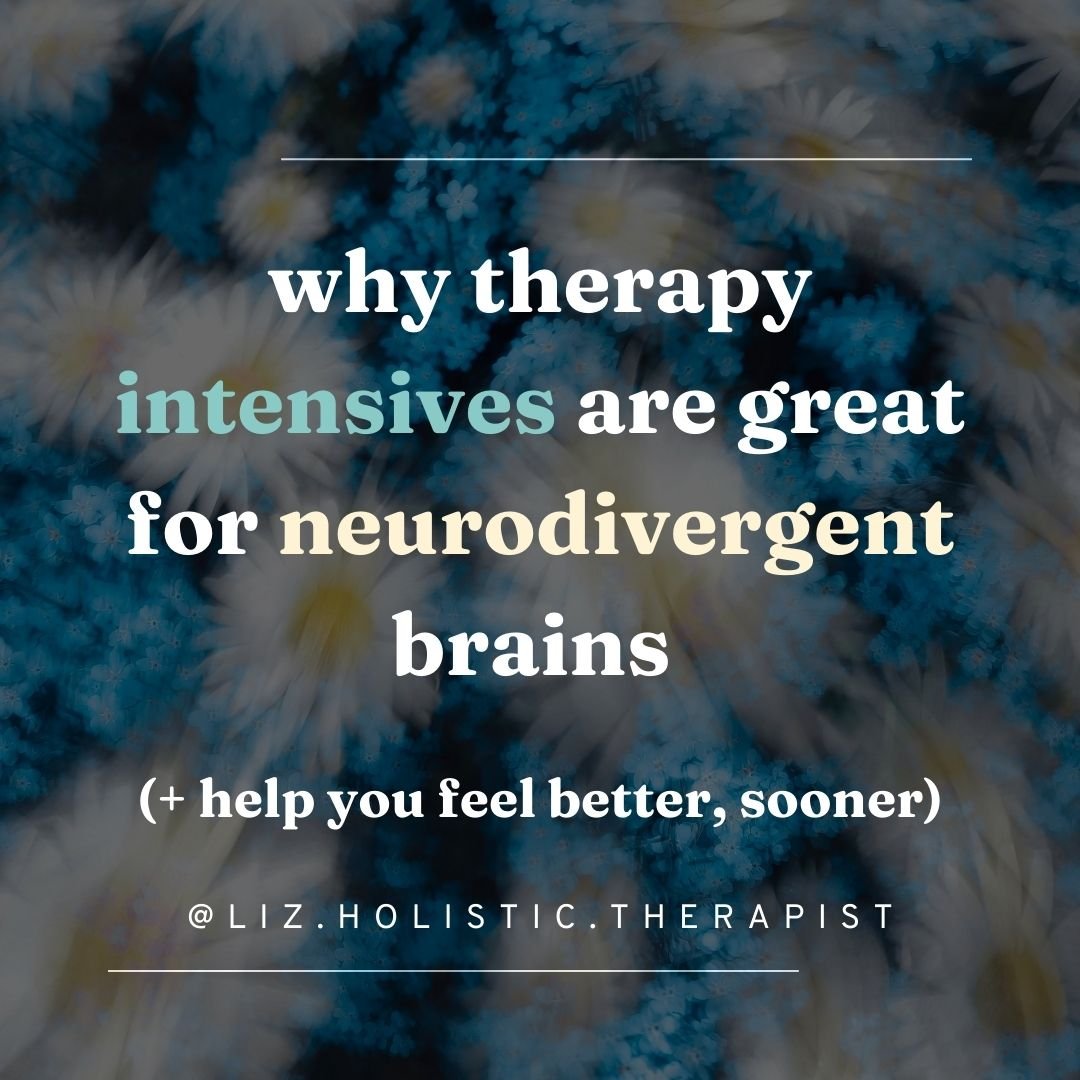Liz Zhou
Holistic Trauma Therapist, Coach, Speaker
Helping highly sensitive, neurodivergent adults & couples.
BLOG
How to Recover from Autistic Burnout: 5 Types of Rest
Feeling like you’re running on empty? Learn about autistic burnout and how to manage it. We’ll explore different types of rest needed for recovery — from sensory breaks to social boundaries — providing actionable strategies to restore your energy.
For Highly Sensitive, Neurodivergent Adults: 4 Things Making Your Sensory Overload Worse
Constant overstimulation, burnout, and meltdowns don’t have to be your norm. A neurodivergent therapist shares 4 simple changes that can help you regulate your nervous system and develop a flexible capacity to handle stress.
For Neurodivergent Adults: 6 Creative Ways to Regulate Your Nervous System
Many neurodivergent adults (autistic, ADHD, highly sensitive) experience emotional intensity, sensory overload, and social challenges that dysregulate their nervous systems. This blog post explores 6 unique ways ND folks can care for their nervous systems through sight, sound, taste, smell, touch, and the crucial practice of taking breaks from sensory input.
How Do I Know if I’m Neurodivergent? | The Umbrella of Neurodivergence
Explore the broad spectrum of neurodiversity, from innate neurodivergence like autism, ADHD, and high sensitivity; to acquired differences resulting from trauma and other experiences. We’ll explain why both formal diagnoses and self-diagnosis are valid; and why there is no such thing as a 100% neurotypical person.
EMDR vs. Brainspotting: Which is Better for Neurodivergent Brains?
EMDR and Brainspotting offer unique approaches to brain-body healing. Discover which therapy might be a better fit for you based on factors like structure, flexibility, and session frequency (weekly vs. intensive).
For Late-Diagnosed Autistic Adults: 3 Affirming Reminders on Your Unmasking Journey
You are not broken. Your goal doesn’t have to be to fully unmask all the time, if you don’t feel safe or ready to do so. And you don’t have to magically “know” yourself post-diagnosis/discovery of your autism.
Why Therapy Intensives are Great for Neurodivergent Brains
If you’re neurodivergent (autistic, ADHD, highly sensitive) and traditional therapy hasn’t quite worked for you, a therapy intensive could be a helpful alternative. Intensives are a form of short-term, accelerated therapy, using powerful modalities like Internal Family Systems, Brainspotting, and EMDR to heal the nervous system.
Healing Complex Trauma as a Neurodivergent Person
Let’s explore the 4 phases of CPTSD recovery. Here’s why you might feel worse before you feel better, and why you might feel more neurodivergent (more autistic, more ADHD) as you heal from complex trauma.
Unmasking Autism: 6 Common Experiences of Late-Diagnosed Autistic Women
Many women discover their autism later in life. This delayed diagnosis is often due to societal misconceptions, gender bias, and the tendency to mask autistic traits. Let’s explore the common experiences of women who’ve been labeled “quiet,” “shy,” “sensitive,” and “different.”
4 Compassionate Ways to Support Your Partner after a Late-in-Life Autism Diagnosis
So one (or both) of you has just discovered that you’re autistic, whether through formal diagnosis or self-identification. What now? An autistic therapist shares how to positively integrate an understanding of autism in your relationship, allowing both partners to experience deeper connection and understanding.










